International Insurance Regulators establish forum to address Sustainability Issues
The Sustainable Insurance Forum was launched in San Francisco, California. A full press release detailing the launch can be found here.
The Sustainable Insurance Forum was launched in San Francisco, California. A full press release detailing the launch can be found here.

The Dubai Financial Services Authority (DFSA) is the independent regulator of financial services conducted in and from the Dubai International Financial Centre (DIFC), a purpose-built financial free zone in Dubai. The DFSA’s regulatory mandate covers asset management, banking and credit services, securities, collective investment funds, custody and trust services, commodities futures trading, Islamic finance, insurance, crowdfunding platforms, money services, an international equities exchange and an international commodities derivatives exchange. The DFSA is also responsible for administering AML/CFT legislation that applies to regulated firms and Designated Non-Financial Businesses and Professions in the DIFC.

The Financial Regulatory Authority (FRA) is a public Authority which enjoys full independence status guaranteed by the Egyptian Constitution to supervise and regulate the non-banking financial markets and instruments. FRA was established in accordance with Law no. 10 of 2009 to be responsible for the Capital Market, Insurance, Mortgage Finance, Financial Leasing, Factoring, MSMEs Finance, and Consumer Finance.

The Australian Prudential Regulation Authority (APRA) is the prudential regulator of the Australian financial services industry. It oversees banks, mutuals, insurance and reinsurance companies, friendly societies, and most members of the superannuation industry. APRA currently supervises institutions holding around $9 trillion in assets.

The Central Bank of the UAE (CBUAE ) is the supervisory and regulatory authority of the banking and insurance sector in the United Arab Emirates. The CBUAE promotes financial and monetary stability, efficiency and resilience in the financial system, and the protection of consumers through effective supervision that supports economic growth for the benefit of the UAE and its people.

The Connecticut Insurance Department is the independent agency within the State of Connecticut charged with the regulation of Connecticut’s insurance industry. Since its establishment in 1871, the mission of the Connecticut Insurance Department is to protect the rights and interests of insurance consumers by facilitating a strong and competitive insurance market, enforcing insurance regulatory laws and requirements in a fair and consistent manner, and offering education and assistance to all constituents.

The Illinois Department of Insurance (IDOI) protects consumers by providing assistance and information, by efficiently regulating the insurance industry’s market behavior and financial solvency, and by fostering a competitive insurance marketplace. Illinois insurance regulation began in 1869 with the passage of a law for fire insurance companies. The Department was established by the General Assembly in 1893.

The Maryland Insurance Administration (MIA) is an independent State agency charged with regulating Maryland’s $49 billion insurance industry.

The Massachusetts Division of Insurance regulates the business of insurance within the Commonwealth of Massachusetts. The Division’s primary mission is to monitor the solvency of its licensees in order to promote a healthy, responsive and willing marketplace for consumers who purchase insurance products.

The Superintendence of Private Insurance (SUSEP) is directly linked to the Ministry of Finance. It is the executive body of the politics delineated by the CNSP and is also the insurance commissioner, responsible for the supervision and control of the insurance, reinsurance, open private pension funds and capitalization markets in Brazil.

The Bermuda Monetary Authority is the sole regulator of Bermuda’s financial services sector. Established by statute in 1969, the Authority supervises, regulates and inspects financial institutions operating in the jurisdiction by developing prudent risk-based financial regulations.

Superintendencia de Seguros de la Nación’s (SSN) principal mission is to promote a solvent, competitive and efficient insurance market with sufficient and professional capacity to protect the right of the insures and contribute to the economic growth of the country.

The New York State Department of Financial Services (DFS) supervises and regulates the activities of nearly 3,000 financial institutions with assets totaling more than $8.8 trillion. The types of institutions regulated by the Department include more than 1,700 insurance companies with assets of more than $5.5 trillion and more than 1,200 banking and other financial institutions with assets totaling more than $3.3 trillion.

The California Department of Insurance (CDI) was created in 1868 as part of a national system of state-based insurance regulation. CDI enforces the insurance laws of California and has authority over how insurers and licensees conduct business in California.

The National Association of Insurance Commissioners (NAIC) is the U.S. standard-setting and regulatory support organization governed by the chief insurance regulators from the 50 states, the District of Columbia, and five U.S. territories. The NAIC provides expertise, data, and analysis for state insurance commissioners to effectively regulate the industry and protect consumers. Through the NAIC, state insurance regulators establish standards and best practices, conduct peer reviews, and coordinate regulatory oversight.

Title V of the Dodd-Frank Wall Street Reform and Consumer Protection of 2010 established the Federal Insurance Office (FIO) within the U.S. Department of the Treasury. It advises the Secretary of the Treasury on domestic and international insurance policy issues and has its director serve as a non-voting member of the Financial Stability Oversight Council (FSOC).

The Bank of England (BoE) is the UK’s central bank, whose mandate is to maintain monetary and financial stability. The BoE also regulates and supervises financial services firms through the Prudential Regulation Authority (PRA).

The Prudential Authority promotes and enhances the safety, soundness and integrity of financial institutions and market infrastructures in South Africa.
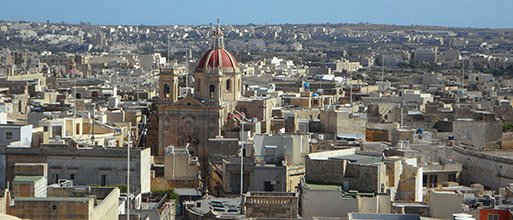
Autorité de Contrôle des Assurances et de la Prévoyance Sociale (ACAPS) is the competent authority for the supervision of insurance and reinsurance companies, insurance intermediaries as well as the social welfare organizations (pension funds, mutual social welfare agencies and management bodies of the compulsory health insurance).

The Financial Services Agency (FSA) is responsible for ensuring the stability of Japan’s financial system, protection of depositors, insurance policyholders and securities investors, and smooth finance through such measures as planning and policymaking concerning the financial system, inspection and supervision of private sector financial institutions, and surveillance of securities transactions.

The National Insurance Commission (NIC) ensures the effective administration, supervision, regulation and monitoring of the business of insurance in Ghana. The NIC is mandated to perform a wide spectrum of functions including the licensing of entities, setting of standards and monitoring the operations of the market. The NIC’s ultimate objective is to establish an efficient, fair, safe and stable Insurance Market, protect insurance policyholders and promote financial stability.

The Federal Financial Supervisory Authority (BaFin) is an integrated authority supervising banks and financial services providers, insurance undertakings, institutions for occupational retirement provision, and securities trading.

The Autorité de contrôle prudentiel et de résolution (ACPR) is responsible for the supervision of the banking and insurance sectors. It ensures the stability of the financial system and the protection of customers, policyholders, members and beneficiaries of the undertakings under its supervisory remit.

Finanssivalvonta, or the Financial Supervisory Authority (FIN-FSA),is the authority for supervision of Finland’s financial and insurance sectors. The insurance supervision of the Financial Supervisory Authority (FIN-FSA) has overall responsibility for prudential supervision and also for conduct supervision of the insurance sector.

The European Insurance and Occupational Pensions Authority (EIOPA) is an independent EU authority that promotes a sound regulatory framework and consistent supervisory practices and contribute to the public confidence in the European Union’s insurance and occupational pensions sectors. It is an advisory body to the European Commission, the European Parliament, and the Council of the European Union. EIOPA is one of the EU agencies carrying out specific legal, technical or scientific tasks, and giving evidence-based advice. EIOPA helps shape informed policies and laws at both the EU and national levels.

The General Insurance Superintendency (SUGESE) was established in 2008 and operates as an independent supervisory entity under the Central Bank of Costa Rica. It is responsible for the prudential and conduct supervision of the insurance market, aiming to foster the development of an efficient, stable, and fair market for the benefit of consumers.

The Office of the Superintendent of Financial Institutions (OSFI) is an independent federal government agency that regulates and supervises banks, insurance companies and private pension plans in Canada to determine whether they are in good financial condition and meeting their regulatory and supervisory requirements.

The Washington State Office of the Insurance Commissioner protects insurance consumers and oversees the insurance industry. It makes sure insurance companies follow the rules and people get the coverage they have paid for.

Vermont’s Department of Financial Regulation comprises four divisions and an administration that protect consumers against unfair and unlawful business practices in banking, securities, insurance, and captive insurance and ensure that regulated entities remain financially healthy and able to deliver services to consumers at costs that are reasonable for the marketplace.

FINMA is Switzerland’s independent financial-markets supervisory authority. Its mandate is to supervise banks, insurance companies, financial institutions, collective investment schemes, and their asset managers and fund management companies. It also regulates insurance intermediaries. It is charged with protecting creditors, investors and policyholders. FINMA is responsible for ensuring that Switzerland’s financial markets function effectively. FINMA is addressing the subject of climate- and nature-related financial risks as part of its supervisory remit.

Finansinspektionen (FI) is Sweden’s financial supervisory authority. Its role is to promote stability and efficiency in the financial system and ensure effective consumer protection.

The Monetary Authority of Singapore (MAS) is Singapore’s central bank and integrated financial regulator. MAS also works with the financial industry to develop Singapore as a dynamic international financial centre.
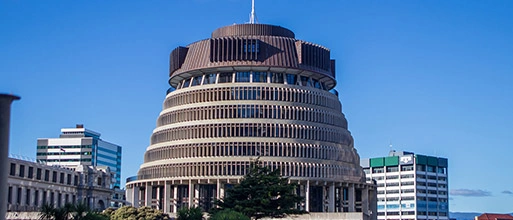
The Reserve Bank of New Zealand, Te Pūtea Matua, is New Zealand’s central bank. It promotes the prosperity and well-being of New Zealanders and contributes to a sustainable and productive economy.

De Nederlandsche Bank (DNB) is an independent central bank, prudential supervisory authority and resolution authority committed to a stable financial system: stable prices, solid financial institutions, and properly functioning payment transfers.

The Isle of Man Financial Services Authority is a risk-based financial regulator focused on protecting consumers, reducing financial crime, and maintaining confidence in the Island’s financial services sector through effective regulation.

The Institute for the Supervision of Insurance (IVASS) is the Italian legal entity that works to ensure adequate protection of policyholders by pursuing the sound and prudent management of insurance and reinsurance companies and their transparency and correctness towards customers. The Institute also pursues the stability of the financial system and markets.

The Central Bank of Ireland serves the public interest by maintaining monetary and financial stability while ensuring that the financial system operates in the best interests of consumers and the wider economy. As Ireland’s Financial Regulator, we are part of the European System of Financial Supervision.

The Guernsey Financial Services Commission (GFSC) is the regulatory body for the finance industry in the Bailiwick of Guernsey. Guernsey is a recognised global leader in sustainable finance – it was the first regulator to introduce a green insurance capital regime (2020) and oversees the innovative sustainable fund regimes: the Guernsey Green Fund (2018) and Natural Capital Fund (2022).

The National Bank of Belgium (NBB) has been Belgium’s central bank since 1850. It performs tasks in the general interest at both national and international level. At the European level, the NBB is actively involved in the work of the European Insurance and Occupational Pensions Authority (EIOPA) on sustainability.
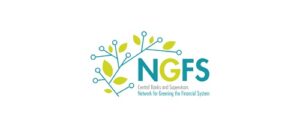
The Central Bank and Supervisors Network for Greening the Financial System (NGFS) is a group of Central Banks and Supervisors willing, on a voluntary basis, to exchange experiences, share best practices, contribute to the development of environment and climate risk management in the financial sector, and to mobilize mainstream finance to support the transition toward a sustainable economy.
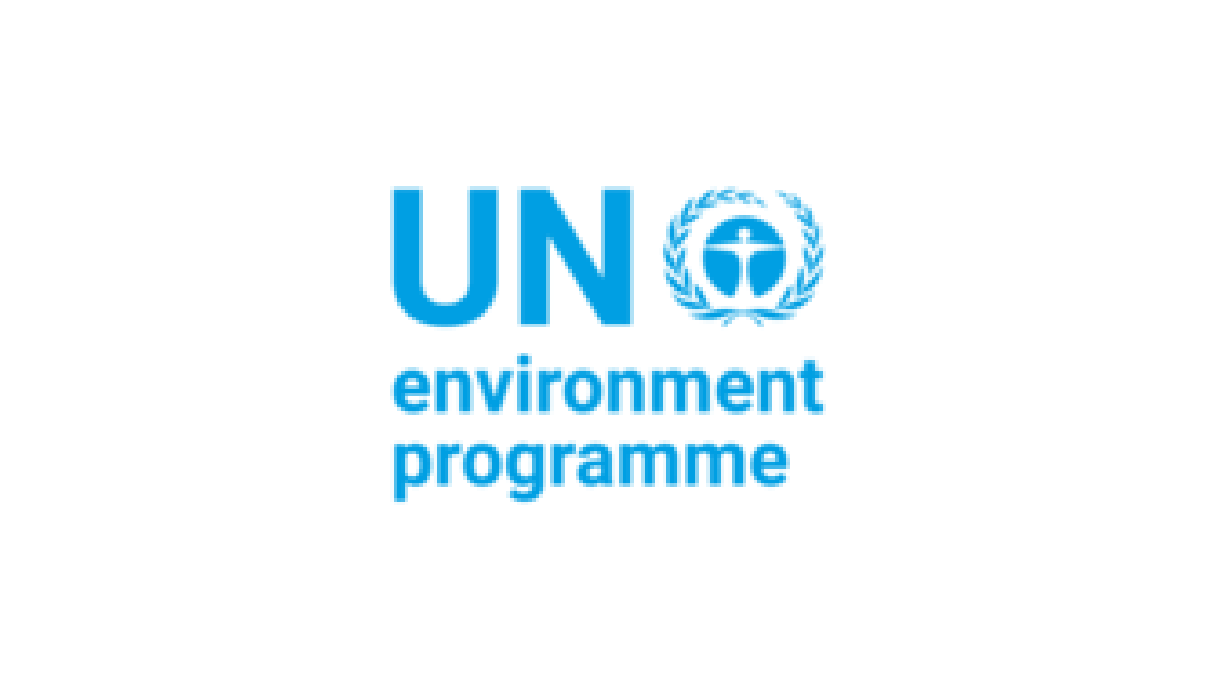
The United Nations Environment Programme (UNEP) is the leading global environmental authority that sets the global environmental agenda, promotes the coherent implementation of the environmental dimension of sustainable development within the United Nations system, and serves as an authoritative advocate for the global environment.
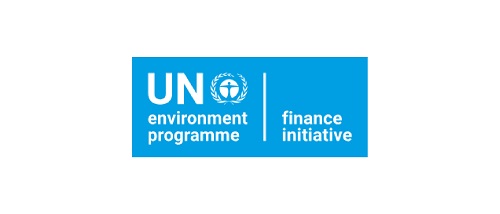
Launched at the 2012 UN Conference on Sustainable Development, the UNEP Finance Initiative’s Principles for Sustainable Insurance (UNEP FI PSI) serve as a global framework for the insurance industry to address environmental, social and governance risks and opportunities. UNEP FI is the Secretariat for the UNEP’s Principles for Sustainable Insurance Initiative.
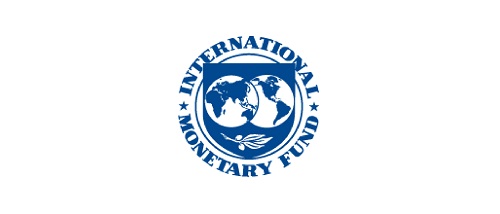
The International Monetary Fund (IMF) is an organization of 190 countries, working to foster global monetary cooperation, secure financial stability, facilitate international trade, promote high employment and sustainable economic growth, and reduce poverty around the world.
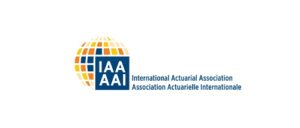
The International Actuarial Association (IAA) is the worldwide association of professional actuarial associations, representing over 70,000 actuaries in more than 115 countries, with six special interest sections for individual actuaries.

The Financial Stability Institute (FSI) was jointly created in 1998 by the Bank for International Settlements (BIS) and the Basel Committee on Banking Supervision. The FSI’s mandate is to assist supervisors around the world in improving and strengthening their financial systems.
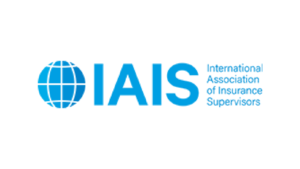
The IAIS (INTERNATIONAL ASSOCIATION OF INSURANCE SUPERVISORS) is a voluntary membership organization of insurance supervisors and regulators from more than 200 jurisdictions, constituting 97% of the world’s insurance premiums.
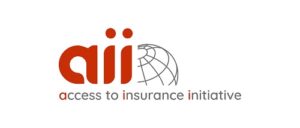
The A2ii is a unique global partnership working to ensure that the world’s excluded and underserved have access to insurance, allowing them to take control of their lives, and reduce their vulnerability against risks. They do this by supporting insurance supervisors and regulators to create the conditions necessary for an inclusive insurance market to grow.
